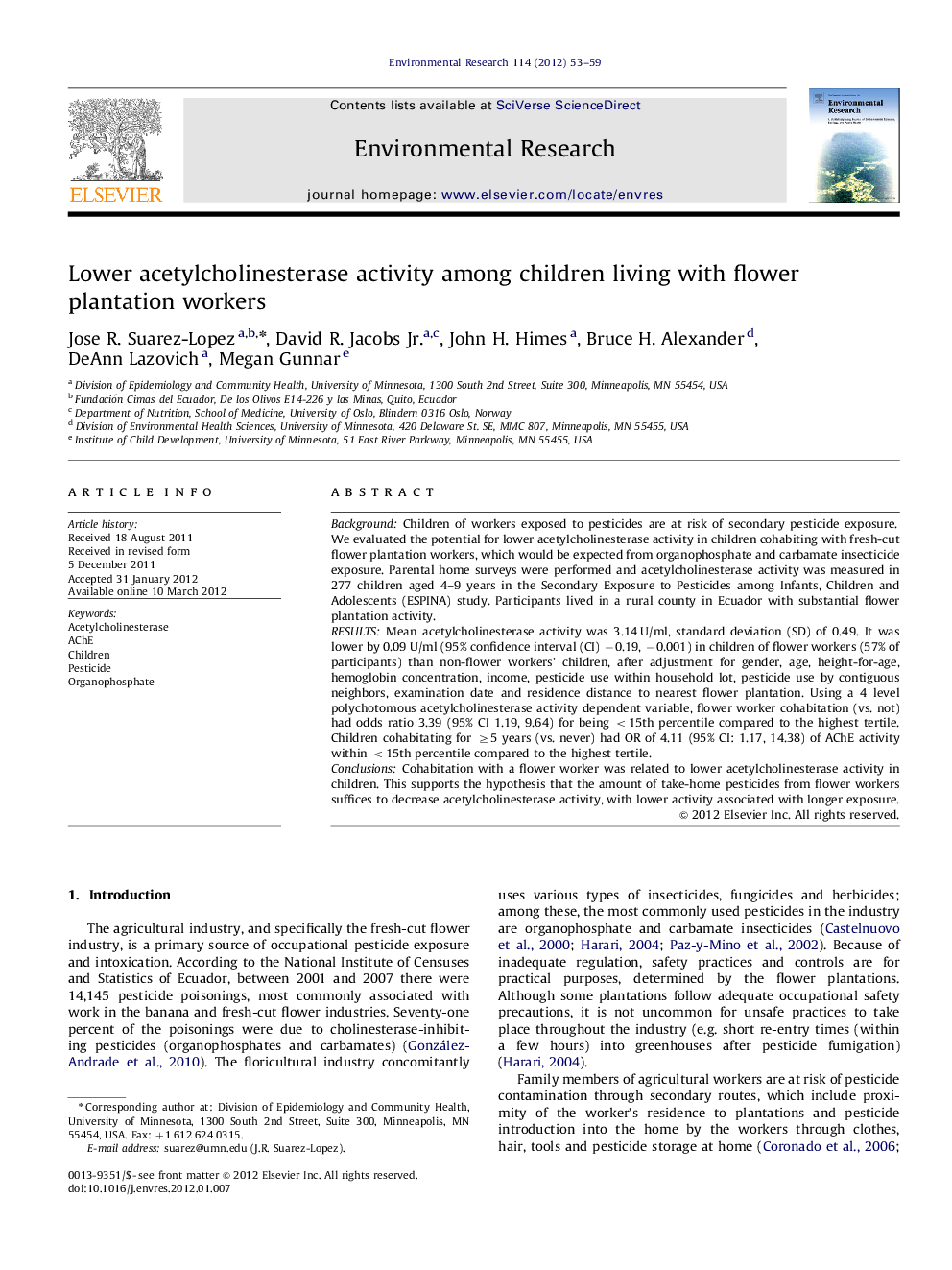| کد مقاله | کد نشریه | سال انتشار | مقاله انگلیسی | نسخه تمام متن |
|---|---|---|---|---|
| 4470095 | 1622587 | 2012 | 7 صفحه PDF | دانلود رایگان |

BackgroundChildren of workers exposed to pesticides are at risk of secondary pesticide exposure. We evaluated the potential for lower acetylcholinesterase activity in children cohabiting with fresh-cut flower plantation workers, which would be expected from organophosphate and carbamate insecticide exposure. Parental home surveys were performed and acetylcholinesterase activity was measured in 277 children aged 4–9 years in the Secondary Exposure to Pesticides among Infants, Children and Adolescents (ESPINA) study. Participants lived in a rural county in Ecuador with substantial flower plantation activity.RESULTSMean acetylcholinesterase activity was 3.14 U/ml, standard deviation (SD) of 0.49. It was lower by 0.09 U/ml (95% confidence interval (CI) −0.19, −0.001) in children of flower workers (57% of participants) than non-flower workers’ children, after adjustment for gender, age, height-for-age, hemoglobin concentration, income, pesticide use within household lot, pesticide use by contiguous neighbors, examination date and residence distance to nearest flower plantation. Using a 4 level polychotomous acetylcholinesterase activity dependent variable, flower worker cohabitation (vs. not) had odds ratio 3.39 (95% CI 1.19, 9.64) for being <15th percentile compared to the highest tertile. Children cohabitating for ≥5 years (vs. never) had OR of 4.11 (95% CI: 1.17, 14.38) of AChE activity within <15th percentile compared to the highest tertile.ConclusionsCohabitation with a flower worker was related to lower acetylcholinesterase activity in children. This supports the hypothesis that the amount of take-home pesticides from flower workers suffices to decrease acetylcholinesterase activity, with lower activity associated with longer exposure.
► Families of agricultural workers have a higher risk of pesticide exposure.
► We studied Ecuadorian children living with and without floricultural workers.
► Floricultural workers’ children had lower acetylcholinesterase activity.
► Longer cohabitation with flower workers associated with lower acetylcholinesterase.
Journal: Environmental Research - Volume 114, April 2012, Pages 53–59